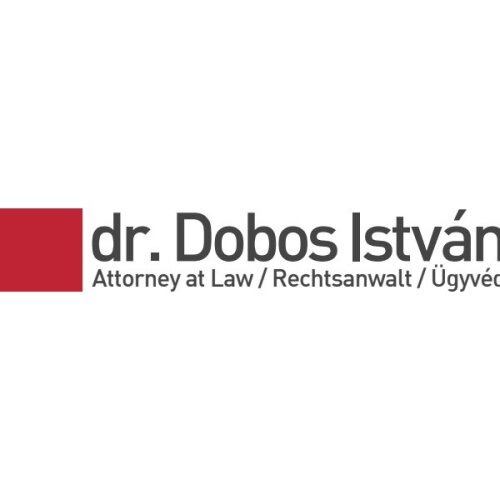Best Sanctions & Export Controls Lawyers in Hungary
Share your needs with us, get contacted by law firms.
Free. Takes 2 min.
Or refine your search by selecting a city:
List of the best lawyers in Hungary
About Sanctions & Export Controls Law in Hungary
Sanctions and export controls are key elements of international trade regulation. In Hungary, these legal frameworks are designed to ensure compliance with both European Union and United Nations obligations concerning the movement of goods, services, financial assets, and technologies. Sanctions typically involve measures imposed against countries, organizations, or individuals to achieve foreign policy or national security objectives. Export controls restrict or monitor the trade and transfer of specific goods, particularly those with military or dual-use (civil and military) applications. Hungary enforces these laws strictly, given its status as an EU member state and its integration into broader European and international security structures.
Why You May Need a Lawyer
Legal advice in the field of sanctions and export controls may be necessary for a variety of reasons. Businesses involved in international trade may face uncertain regulations when exporting controlled goods or technologies. Violations can result in severe penalties, including fines, revocation of licenses, and even criminal charges. Individuals or companies may require assistance with compliance procedures, licensing applications, audits, internal investigations, or responding to inquiries from Hungarian or EU authorities. A lawyer can also help in cases where assets are frozen, contracts are affected by sanctions, or when navigating complex multinational regulatory requirements.
Local Laws Overview
Hungary implements sanctions and export controls primarily through its national laws, in close alignment with the European Union’s regulations. Key legislative instruments include:
- Hungarian Act CLV of 2016 on the Implementation of International Sanctions
- Government Decrees concerning EU and UN sanction regimes
- Laws and decrees on the control of dual-use goods and military products
The Hungarian Government, through the Ministry of Foreign Affairs and Trade, maintains an updated list of applicable measures. All businesses and residents must comply with these laws. Controls cover a wide spectrum: defense articles, dual-use technologies, certain chemicals and pharmaceuticals, and financial transactions with sanctioned entities. Exporters must often obtain permits or licenses before proceeding, and failure to comply can lead to administrative or criminal consequences.
Frequently Asked Questions
What are sanctions and who imposes them in Hungary?
Sanctions are restrictions or prohibitions targeting specific countries, entities, or individuals primarily for foreign policy reasons. In Hungary, sanctions are imposed in line with European Union and United Nations measures, and implemented by national authorities.
What are export controls?
Export controls are laws that regulate the export or transfer of specific goods, technologies, and services, particularly those that can be used for both civilian and military purposes (dual-use items).
Do Hungarian export control laws apply to services and technology transfers?
Yes, Hungarian and EU export control rules apply not only to physical goods but also to intangible transfers such as software, technology data, and technical assistance.
How do I know if my business needs an export license?
If your business exports goods or technologies listed on the EU dual-use or military products list, or if destination countries are subject to sanctions, you are likely required to apply for licenses before export.
What are the consequences of violating sanctions or export controls?
Violations can lead to administrative penalties, significant fines, revocation of business licenses, and in some cases, criminal prosecution of responsible individuals.
Who enforces sanctions and export controls in Hungary?
The Hungarian Ministry of Foreign Affairs and Trade, together with other governmental agencies such as customs and the police, oversee compliance and enforcement of these laws.
Can assets be frozen under sanctions law in Hungary?
Yes, in case of restrictive measures, Hungarian authorities can freeze assets held by sanctioned entities or individuals, as mandated by EU or UN regulations.
Can I appeal a sanction-related decision in Hungary?
Yes, sanctions and export control decisions can usually be appealed through administrative proceedings and, if necessary, through Hungary's court system.
What should I do if I am contacted by authorities about export control compliance?
You should seek immediate legal advice before responding to inquiries. Having a lawyer ensures your rights are protected and helps you effectively address the authorities' concerns.
Are there any exemptions from export controls in Hungary?
Certain humanitarian exemptions and specific licensing exceptions may apply, depending on the nature of the goods, destination, and end user. These are assessed case by case.
Additional Resources
For further information or assistance, the following resources may be helpful:
- Hungarian Ministry of Foreign Affairs and Trade - Department of Export Controls
- Hungarian National Tax and Customs Authority
- European Union Dual-Use Export Control List and Guidance
- United Nations Sanctions Committee
- Hungarian Chamber of Commerce and Industry - International Trade Section
- Professional legal associations specializing in international trade and export regulations
Next Steps
If you believe your business or activities may be affected by sanctions or export controls, it is important to act proactively. Start by reviewing your operations for potential exposure to controlled goods, technologies, or sanctioned parties. Consult with a qualified Hungarian legal expert familiar with sanctions and export controls to assess your obligations and implement a compliance program. In case of any official inquiry or potential violation, contact a lawyer immediately to guide you through the process and protect your interests. Staying informed and compliant will help you avoid costly legal issues and maintain smooth business operations.
Lawzana helps you find the best lawyers and law firms in Hungary through a curated and pre-screened list of qualified legal professionals. Our platform offers rankings and detailed profiles of attorneys and law firms, allowing you to compare based on practice areas, including Sanctions & Export Controls, experience, and client feedback.
Each profile includes a description of the firm's areas of practice, client reviews, team members and partners, year of establishment, spoken languages, office locations, contact information, social media presence, and any published articles or resources. Most firms on our platform speak English and are experienced in both local and international legal matters.
Get a quote from top-rated law firms in Hungary — quickly, securely, and without unnecessary hassle.
Disclaimer:
The information provided on this page is for general informational purposes only and does not constitute legal advice. While we strive to ensure the accuracy and relevance of the content, legal information may change over time, and interpretations of the law can vary. You should always consult with a qualified legal professional for advice specific to your situation.
We disclaim all liability for actions taken or not taken based on the content of this page. If you believe any information is incorrect or outdated, please contact us, and we will review and update it where appropriate.
Browse sanctions & export controls law firms by city in Hungary
Refine your search by selecting a city.

















